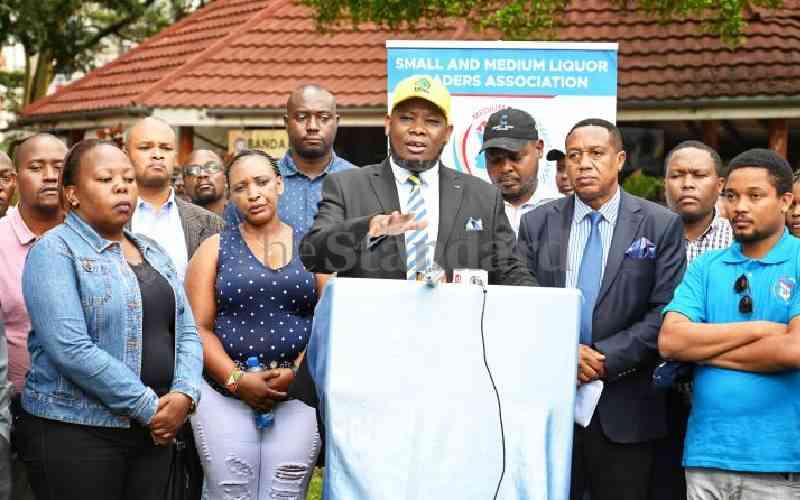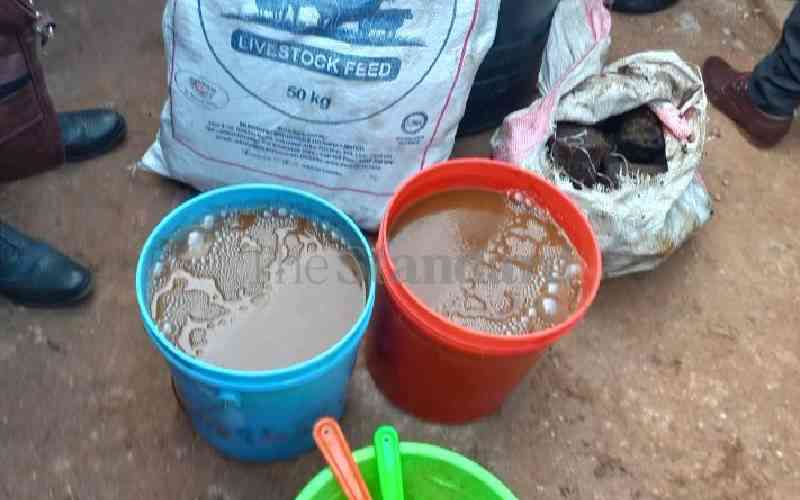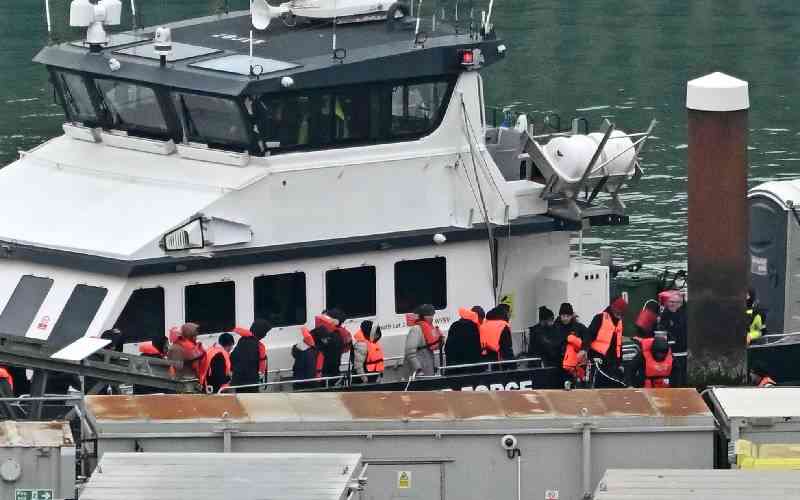Nearly every Kenyan family is directly or indirectly afflicted by the scourge of chronic alcoholism and drug abuse. To say otherwise would be an open betrayal of a scary fact. That is why Kenyans are craving for a sober approach to the illicit brews menace.
We must sit up and admit that alcoholism and drug abuse is a national crisis. The ravages of alcoholism transcend ethnic and regional boundaries, ultimately impacting negatively on productivity, the economy and social life. In the recent past, Kenya has lost hundreds of young men and women to illicit brews. Those who escaped death were blinded or permanently paralysed.
In 1996, the government formed an Inter-Ministerial Drugs Co-ordinating Committee to deal with the rising cases of drug and substance abuse. This later led to establishment of the National Authority for the Campaign Against Alcohol and Drug Abuse (Nacada) through an Act of Parliament in 2012.
In part, Nacada’s mandate is to assist county governments develop and implement policies, laws, plans and action on the control of drugs and consumption of alcoholic drinks. In addition to this, Nacada is supposed to develop and maintain proactive co-operation with regional and international institutions in areas relevant to achieving its objectives.
Sadly, with incessant wrangles within the authority over suspicion of complicity and supremacy battles, there is no evidence of this having taken place. Nacada has not had a sustained civic education campaign in the recent past on effects of alcohol and drug abuse. It has failed in its core mandate of campaigning against production, manufacture, sale and consumption of illicit alcoholic drinks and drugs.
In the recent past, hundreds of people, some as young as 10 years old, according to a survey by Nacada, died from consumption of illicit brews lased with an industrial chemical known as methanol, which is illegally used to increase potency of the drinks.
This effectively makes them killer drinks. Because of the heightened activities of NGOs and enraged women in parts of Central where alcohol abuse has wrecked the family unit, the problem finally caught the attention of the Head of State who, on Wednesday, ordered an immediate withdrawal of licences for those dealing in second generation alcoholic drinks.
President Uhuru Kenyatta also instructed leaders from central Kenya to report progress to him within a week. But therein lies the danger: how will local leaders effect the presidential directive, given that a politician’s modus operandi, and possible motives, disqualifies them from such a task?
For one, they lack the necessary expertise, as demonstrated by the unfortunate incident where Kabete MP Ferdinand Waititu led a group of youths in breaking, and entering unlicensed bars. The irony of the Waititu saga is that the youths cheering him on ended up consuming what they were sent to destroy. We must guard against unrestrained politicians seeking cheap publicity by breaking the law through irresponsible acts in the guise of serving the public interest.
We appreciate and share the President’s concern over the rising cases of alcoholism and his ire at those charged with stopping the consumption of illicit brews for failing in their duties.
But concentrating all energies in central Kenya bears the stamp of parochialism as it carries the attendant risk of simply shifting the problem elsewhere, by prompting the illicit brewers in central Kenya to move their illicit trade to other regions that are not in focus right now.
Worse, is that the country has learnt to be sceptical about these short-lived “raids” on brewing dens.
The government must initiate a concerted and sustainable national action against illicit brews and drugs, with harsh penalties actually being meted against the culprits. Similarly, the government must take the lead in ensuring that those suffering alcoholism and the effects of drug abuse are given effective treatment.
Nacada needs urgent reconstitution to make the authority more effective. The appointments to the authority must be devoid of political consideration. We call for a sober approach to fighting this menace before it consumes the next generation.
 The Standard Group Plc is a
multi-media organization with investments in media platforms spanning newspaper
print operations, television, radio broadcasting, digital and online services. The
Standard Group is recognized as a leading multi-media house in Kenya with a key
influence in matters of national and international interest.
The Standard Group Plc is a
multi-media organization with investments in media platforms spanning newspaper
print operations, television, radio broadcasting, digital and online services. The
Standard Group is recognized as a leading multi-media house in Kenya with a key
influence in matters of national and international interest.
 The Standard Group Plc is a
multi-media organization with investments in media platforms spanning newspaper
print operations, television, radio broadcasting, digital and online services. The
Standard Group is recognized as a leading multi-media house in Kenya with a key
influence in matters of national and international interest.
The Standard Group Plc is a
multi-media organization with investments in media platforms spanning newspaper
print operations, television, radio broadcasting, digital and online services. The
Standard Group is recognized as a leading multi-media house in Kenya with a key
influence in matters of national and international interest.









